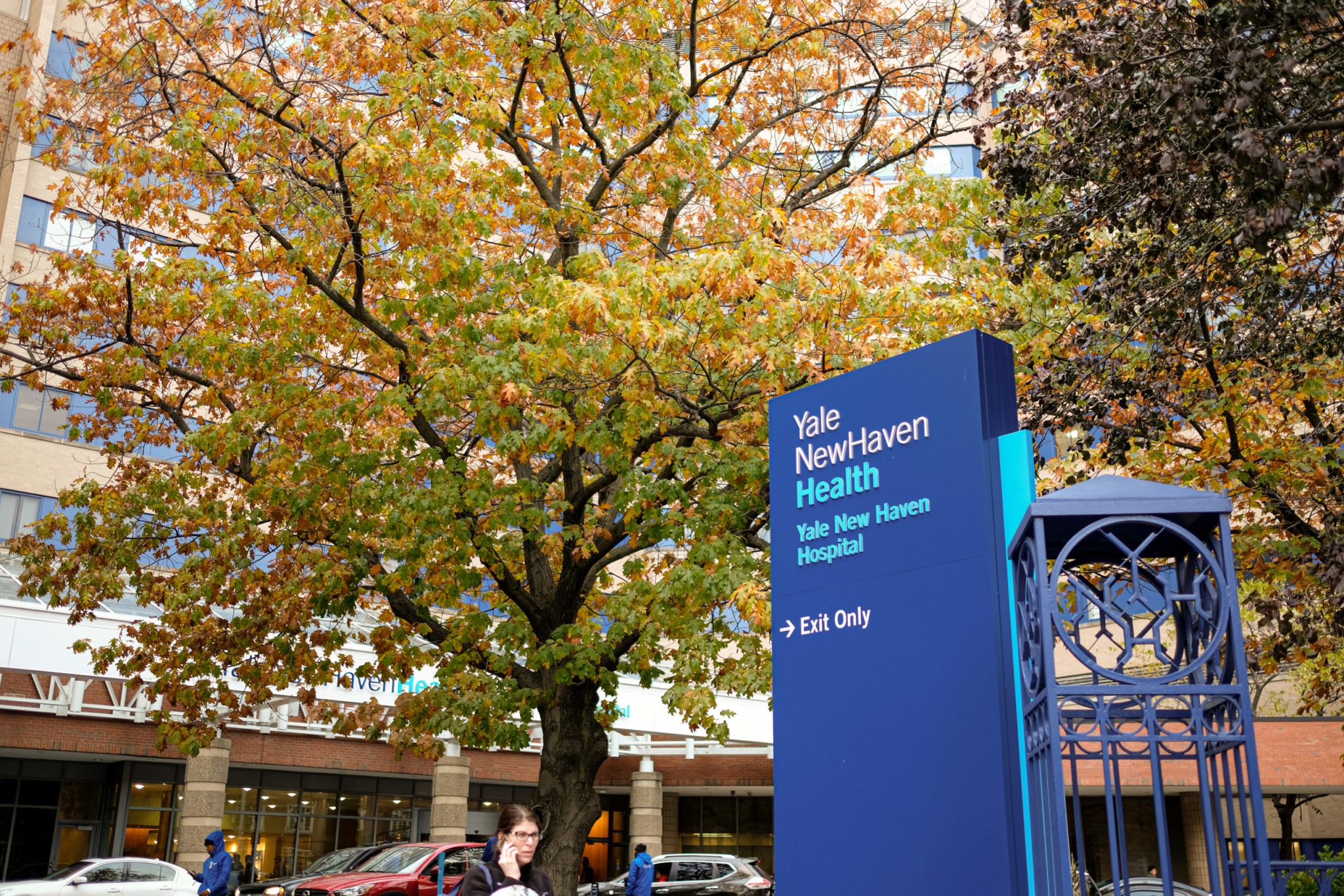Yale New Haven Hospital system projects two years of deficits, lays off 72 administrators
83 vacant positions as well as 72 administrators were laid off by YNHH last Wednesday following the system projecting a $300 million dollar loss for fiscal year 2022 and projecting a similar loss next year.

Eric Wang, Senior Photographer
After 50 years of profit, Yale New Haven Health expects to lose more money than it earns this year.
As a result, the company made 155 cuts to administrative positions last Wednesday, including the firing of 72 hospital managers and the elimination of 83 vacant positions, all based in New Haven. The cuts were made at both junior and senior levels of administration, though they will not directly or immediately impact patient care.
YNHH projects a $300 million loss for the current fiscal year due to pandemic-related costs. Before the pandemic, the hospital system had not seen a deficit since its formation in 1995. The flagship New Haven location had not ended a year in the red for more than five decades.
“It was an extraordinarily difficult day, especially for those impacted, and it’s not something we’ve done before as a health system,” YNHH Vice President Vin Petrini said. “I’ve been here nearly 20 years, and I’ve never experienced that before.”
The woes could continue — YNHH is now budgeting for a $250 million deficit in 2023.
Employees were laid off in individual meetings with managers and ended their jobs at the end of last week, according to Petrini.
“It was a smart move to cut managers,” said Naomi Rogers, professor of the history of medicine at the Yale School of Medicine. “Managers don’t unionize and so you’re not looking at potential unionization issues … it’s always interesting to see the millions of dollars that hospitals can come up with for anti-unionization campaigns.”
YNHH will continue to make investments in key positions like nurses and investing in employees, Petrini said. To stabilize YNHH’s budget in the future, however, the system will reduce premium labor costs like travel nurses. Administrators are also working to alleviate ongoing supply chain issues.
With more and more services gradually being conducted in-person, Petrini said that the system is projecting an 8 percent increase in the volume of outpatient services, which refers to services provided without the need for hospital admission.
“Everyone has been terribly impacted by the pandemic, at historic inflation, rising costs for premium labor and the expiration of the CARES Act funding, and it’s put a lot of health systems in a very difficult position,” Petrini said.
According to Petrini, none of the positions cut were “patient-facing” — meaning they were not directly involved in food services, security, transport or patient care. Moreover, he stressed that none of the layoffs “impact frontline and caregiver” employees.
“The layoffs were more restructuring of our management than a cut in services provided due to severe economic pressure,” Petrini told the News. “We’re going to have to transfer some of the responsibilities to others that are here, and we’re going to have work on this for next fiscal year.”
Another reason YNHH likely targeted managers was to claim that no “patient facing” people were cut. Rogers argued that in a hospital, these people would still be involved with patient care in some way, however the phrase eases public concern.
City officials do not expect New Haveners to see cuts in services provided.
“The YNHH cuts will have no impact on patient services so [the city] has nothing to add,” mayoral spokesperson Lenny Speiller told the News over text.
The Yale New Haven Health System was founded in 1996.
Correction 3/26: The article has been updated to clarify that YNHH projected two years of deficits and was not in its second year of deficits at the time of this article’s posting. The title and subhead have been updated accordingly.







